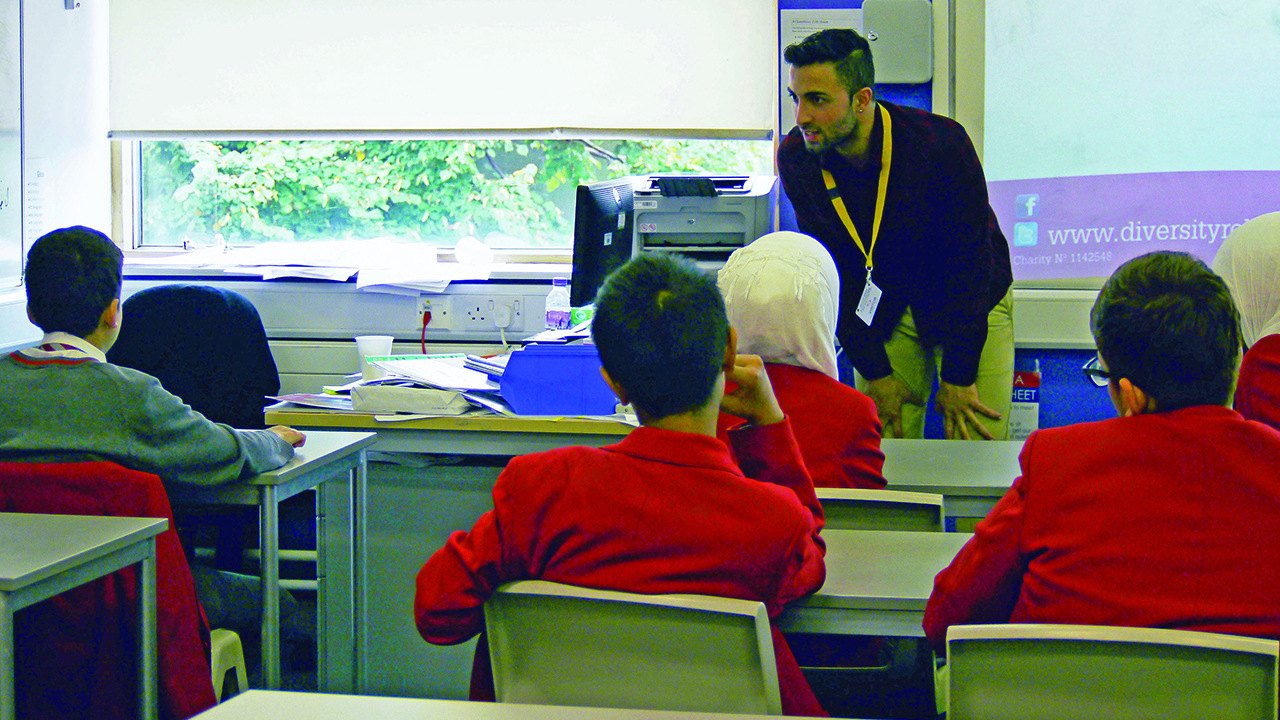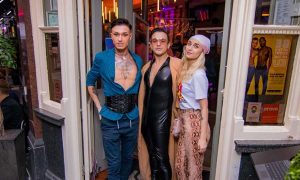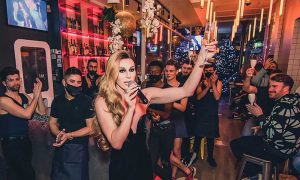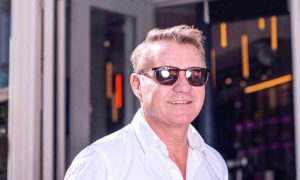 Following 10 years of successfully raising in excess of £100k for The Food Chain, the Ku Group is now supporting Diversity Role Models, a fledgling charity that actively seeks to prevent homophobic and transphobic bullying in UK schools. We spoke with DRM CEO and Founder Suran Dickson to find out more.
Following 10 years of successfully raising in excess of £100k for The Food Chain, the Ku Group is now supporting Diversity Role Models, a fledgling charity that actively seeks to prevent homophobic and transphobic bullying in UK schools. We spoke with DRM CEO and Founder Suran Dickson to find out more.
When and why was Diversity Role Models set up?
I founded the charity in 2011. As an out teacher, I’d observed homophobia in all the schools where I’d worked; but I’d also observed that it’s not just LGBT young people who are targeted by this form of bullying. Anyone with LGBT friends and family, or who doesn’t fit rigid gender stereotypes, can be targeted. And the misuse of language – with phrases such as ‘that’s so gay’ – only feeds into this. It was the tragic case of a young man who took his own life after being called gay which prompted me to stand up and take action.
What does the charity do?
DRM tackles homophobic, biphobic and transphobic bullying in schools. We have two main programmes: pupil workshops, which feature volunteer role models sharing positive stories of being LGBT or knowing someone who is; and staff training, to give all school staff the confidence to tackle bullying behaviour if they see it. As well as supporting LGBT young people, our work helps create allies of the future among their straight peers – and ultimately makes schools safer learning environments.
As a charity, what has been your biggest achievement to date?
We’re hugely proud of our headline figures. In five years, we’ve reached nearly 50,000 young people with our workshops and trained over 2,000 school staff. We’ve expanded beyond our London base into regional hubs in Merseyside, Greater Manchester, the West Midlands, Bristol and Cornwall. And our workshop programme has won awards.
But it’s also some of the smaller stories which count as our biggest achievements. We’ve had amazing positive feedback from young people who say they’ve had the confidence to come out following a day of our workshops in their schools. And we’ve observed a sea-change in behaviour at schools where we’ve worked in successive years, with teachers telling us that there are fewer incidents of these forms of bullying.
What are the charity’s current challenges and targets?
This year we have even bigger plans to work with 29,000 young people across the country, targeting those most at risk of bullying, as well as training more staff and further developing our training programme for school governors. We’re also working at tackling some of the deeper root causes of bullying, which stem from rigidly defined gender roles and gender identity. Of course we’re a charity, so one key challenge for us is always to raise the funds to keep us operating. And we need links to schools so that we can speak to the right people to have a longterm effect in each of the schools we work with.
Explain how the connection with Ku Bar came about.
We happened to get an introduction to Ku owner Gary Henshaw at just the right time earlier this year. Not only was it just as we were about to move our office to Soho, but Ku was looking to develop a partnership with a different charity after ten hugely successful years supporting The Food Chain, which does wonderful work for people living with HIV.
You held an introduction evening last week at Ku group’s Light Lounge – who attended and how did the event go?
As well as helping us with raising funds, Gary and his team are determined to help us out by raising awareness of our work – both in the local community in Soho, and the broader communities of LGBT people. Last week’s event was an opportunity for us to meet local businesses and other third-sector organisations, to put DRM on the Soho map and see how we can work together to reach more young people in schools.
How could a Boyz reader become a Diversity Role Model?
We’re always looking for more volunteers; you can find all the details of how to apply and what we’re looking for on our website. You don’t have to be Nelson Mandela to become a role model, you just need a positive engaging story which will help young people develop empathy. Right now we’re particularly interested in applications from both LGBT people and straight allies who are from a BME (black and minority ethnic) background. And we need more volunteers based outside London for our workshops in regional hubs.














